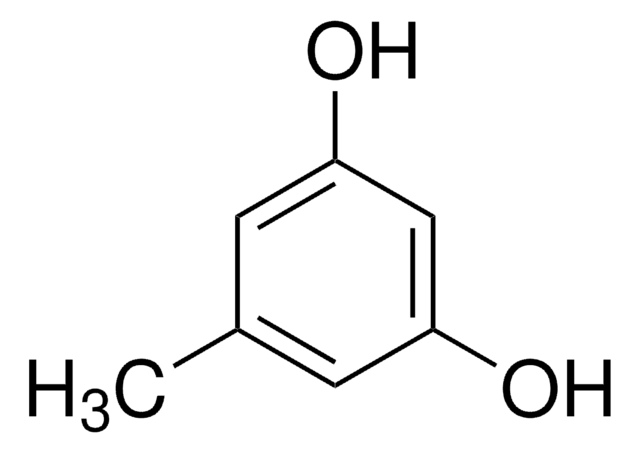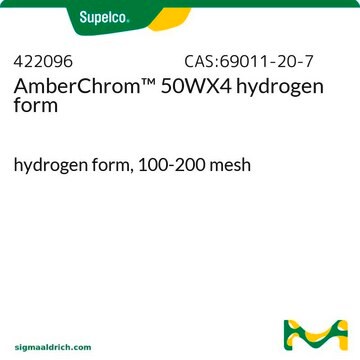398047
Resorcinol
ACS reagent, ≥99.0%
Synonym(s):
1,3-Benzenediol
About This Item
Recommended Products
grade
ACS reagent
Quality Level
vapor density
3.8 (vs air)
vapor pressure
1 mmHg ( 21.1 °C)
Assay
≥99.0%
99.0-100.5% (ACS specification)
form
powder and chunks
autoignition temp.
1126 °F
impurities
≤0.004 meq/g Titr. acid
≤0.005% insolubles
ign. residue
≤0.01%
bp
178 °C/16 mmHg (lit.)
mp
109-112 °C (lit.)
solubility
H2O: 5%, clear, colorless (solution)
SMILES string
Oc1cccc(O)c1
InChI
1S/C6H6O2/c7-5-2-1-3-6(8)4-5/h1-4,7-8H
InChI key
GHMLBKRAJCXXBS-UHFFFAOYSA-N
Looking for similar products? Visit Product Comparison Guide
Application
Signal Word
Danger
Hazard Statements
Precautionary Statements
Hazard Classifications
Acute Tox. 4 Oral - Aquatic Acute 1 - Aquatic Chronic 3 - Eye Dam. 1 - Skin Irrit. 2 - Skin Sens. 1B - STOT SE 1 Oral - STOT SE 2 Oral
Target Organs
Central nervous system,Blood, Respiratory system
Storage Class Code
6.1C - Combustible acute toxic Cat.3 / toxic compounds or compounds which causing chronic effects
WGK
WGK 2
Flash Point(F)
260.6 °F - closed cup
Flash Point(C)
127 °C - closed cup
Personal Protective Equipment
Choose from one of the most recent versions:
Already Own This Product?
Find documentation for the products that you have recently purchased in the Document Library.
Customers Also Viewed
Our team of scientists has experience in all areas of research including Life Science, Material Science, Chemical Synthesis, Chromatography, Analytical and many others.
Contact Technical Service











